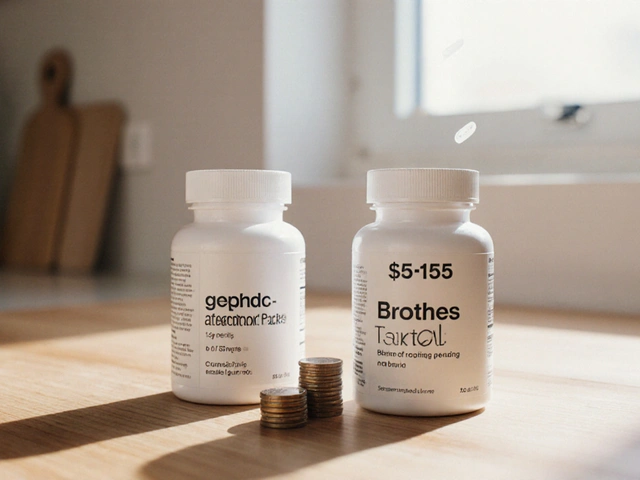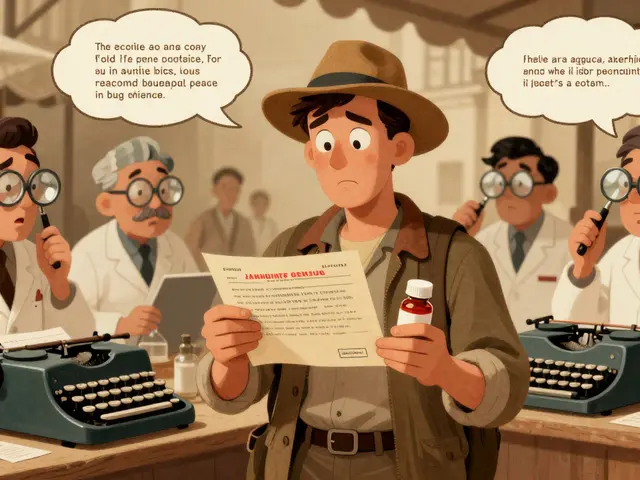Nutrition: Food, Supplements, and Drug Interactions
Good nutrition changes how you feel and how medicines work. This page collects practical tips on eating, supplements, and safe choices when you take drugs. You’ll find clear advice about drug-food interactions, smart supplement use, and simple diet moves that help common conditions like high cholesterol and diabetes.
Nutrition and Medications
Some foods change how medications act. Grapefruit is famous for this, but oranges, Seville oranges and pomelos can matter too. If you take statins, blood pressure meds, or certain antiarrhythmics, ask your doctor whether citrus matters. Also watch vitamin K: leafy greens can reduce warfarin’s effect, so keep intake steady rather than cutting greens out completely.
Timing can fix many problems. Take some meds on an empty stomach and others with food to avoid nausea. Read the leaflet and ask a pharmacist if unsure. If you use supplements like calcium, iron, or magnesium, leave at least two hours between them and antibiotics or thyroid medicine to avoid absorption issues.
Supplements, Safety, and Buying Online
Supplements can help but they’re not harmless. Look for brands that test for purity and list active doses. Avoid miracle claims. If a product interacts with prescription drugs, stop and check with a clinician. For safer online buying, prefer well-known pharmacies and sites that display contact info and clear return policies.
Some of our site guides dig into these topics: Bloodroot as a supplement, peptide products, and safe online purchases for medicines. Those pieces show what to check on labels, how to spot scams, and when to skip DIY treatments. If you have liver issues or take multiple drugs, say no to high-dose herbal mixes until you get professional advice.
Small diet moves have big effects. For cholesterol, focus on fiber, plant sterols, and unsaturated fats while cutting trans fats and excess sugar. For blood sugar control, pair carbs with protein or fiber to blunt spikes. For fluid retention, watch sodium and ask if a diuretic like furosemide (Lasix) makes sense with your doctor.
Practical checks before changing diet or adding supplements: jot down every prescription and over-the-counter product you take, then review with your pharmacist; keep meals consistent if on drugs affected by food; prioritize whole foods over supplements for basic nutrients; and schedule regular screenings for cholesterol and blood sugar.
If you’re managing diabetes or high cholesterol, track one metric weekly—fasting glucose or weight, and adjust meals based on trends. Bring a food log to appointments. If you start a new supplement, try it for a month, note changes, then review with your clinician. Small tracking reveals what really helps.
Nutrition doesn’t replace medical care, but it makes treatment work better. Use reliable sources, ask professionals when in doubt, and treat supplements like drugs — know the dose, the side effects, and the interactions. Want a quick starting step? Pick one habit to change this week: add a serving of beans or leafy greens, swap soda for water, or read labels for sodium. Small changes add up fast.

The Jackfruit Revolution: How This Dietary Supplement is Changing the Way We Think About Nutrition
In my latest blog post, I've delved into the extraordinary rise of the jackfruit as a dietary supplement. This nutritious, versatile fruit is revolutionizing our approach to nutrition with its impressive array of health benefits. Packed with essential nutrients and fiber, it's a fantastic substitute for meat, making it a hit among vegans and vegetarians. The 'Jackfruit Revolution' is indeed changing the way we think about health and diet, proving that nature can provide powerful alternatives to processed supplements. Stay tuned to learn more about this tropical superfood and how it's influencing our dietary choices.
Read More




